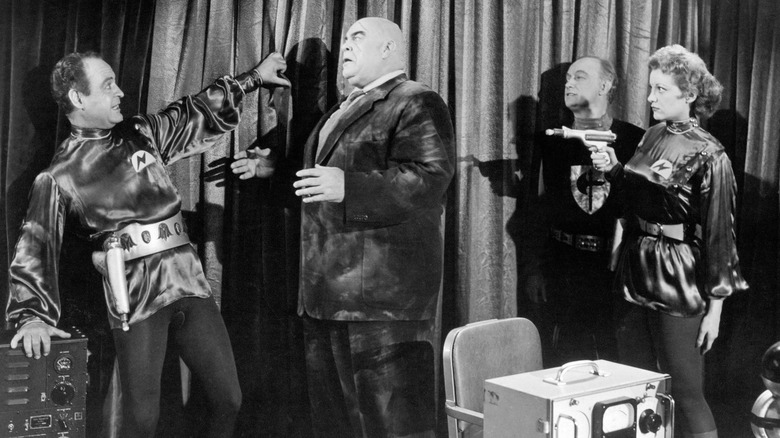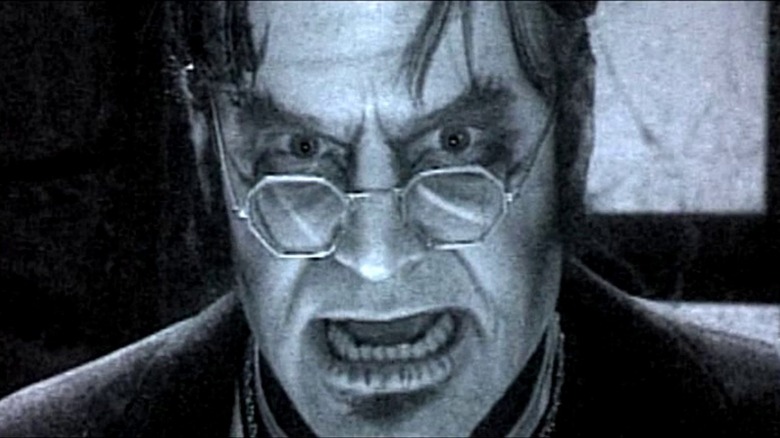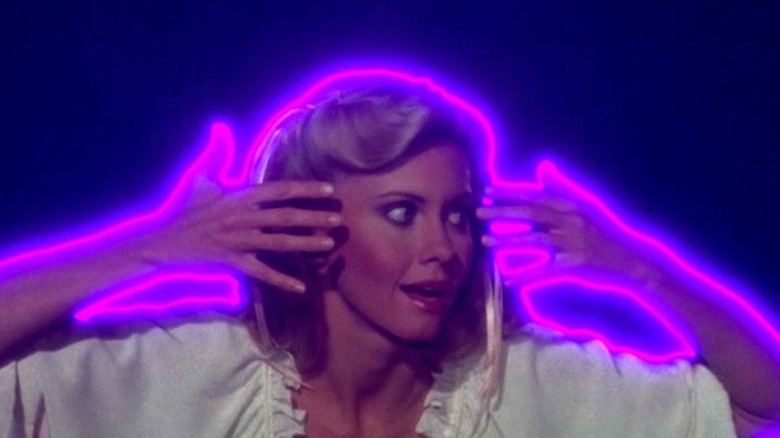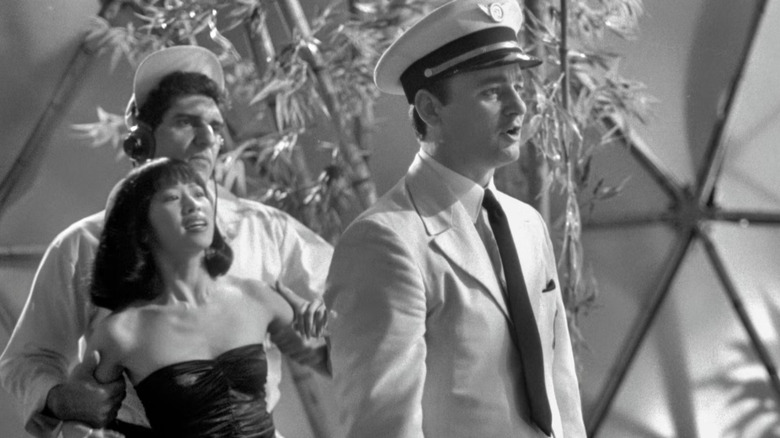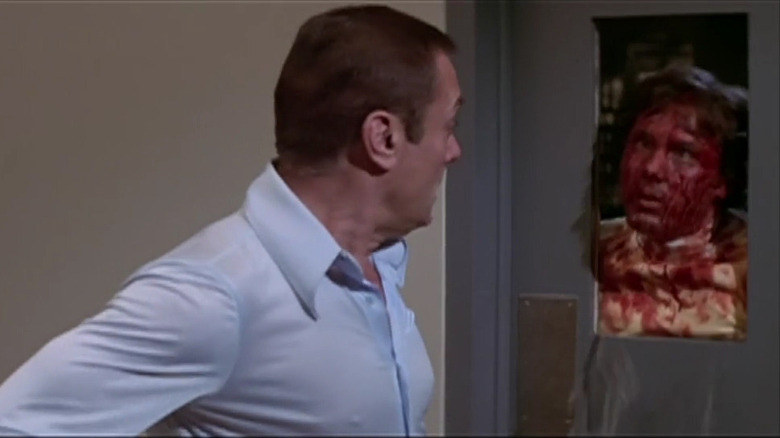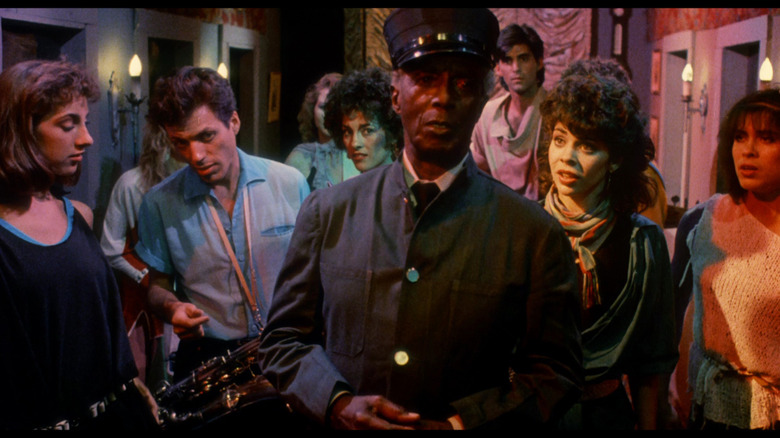The End Of TCM Underground Is A Huge Loss
If there's a basic, no-frills definition for movies, it's that they're made to be seen. Cinema is a populist medium, attempting to reach as wide an audience as possible for as long as possible.
Perhaps that's why the feeling of "discovering" a movie can be so powerfully enjoyable. It gives you the sense, however false, that you're stumbling upon a secret piece of entertainment made just for you. If you happen to discover such a movie in the wee hours of the morning, so much the better — the surreal setting only serves to make what you're watching seem that much more unreal, richer, and special.
It's that sensation that the programming block on Turner Classic Movies known as "TCM Underground" sought to capture every (well, almost every) Friday night-turned-Saturday morning. Begun by Eric Weber in 2006 and continued by programmer Millie De Chirico starting in 2007, TCM Underground made it its business to curate some of the most obscure, wild, and most fun cult genre movies ever made.
That's why it's such a tragedy that the program has reached its end, becoming yet another sacrifice at the altar of Warner Bros. Discovery's rampant cost-cutting measures. In addition to being a bummer for cinephiles looking to broaden their horizons and find hidden gems, the death of the show is yet another loss for the art of curation, the latest in a troubling social trend of devaluing expertise.
Going beyond the 'horror host' trend
When "TCM Underground" was first developed by TCM's former marketing director Eric Weber, it was conceived as a way to bring more young viewers to the network, whose reputation up to that point was that the channel exclusively showed only black-and-white classic films. Then-exec VP general manager Tom Karsch said that Underground "will be an answer to people who think TCM takes itself too seriously."
The original incarnation of "TCM Underground" was a classier version of the "horror host" series, which had been a television staple ever since the 1950s. During that decade, studios such as Universal sold their back catalog of horror films to television stations for a bundled price, causing local broadcasters to hire actors to play host characters who would introduce television airings of the films.
After the first several waves of these programs with hosts like Vampira, Zacherley, and Svengoolie had their runs, the '80s and '90s saw personalities like Elvira and Joe Bob Briggs take over, the latter with his successful "MonsterVision" series on TNT. Thus, director and rock star Rob Zombie was hired to be TCM Underground's version of a horror host, introducing a double feature of "Plan 9 from Outer Space" and "Bride of the Monster" on October 14th, 2006.
Although TCM in general had used hosts to introduce most of their nighttime movie airings and still does to this day, it's likely that Zombie's schedule couldn't permit his continued hosting of the program, and thus "TCM Underground" began to morph into a host-less double-feature block.
Taking an Up All Night Nightflight with Underground
Once Millie De Chirico took over programming for "TCM Underground," the series' focus on psychotronic horror classics and exploitation films began to expand to include a wider range of underseen gems, pulling from the channel's extensive film library as well as licensing some movies outside it as well.
Rather than continuing the horror host show vibe of the first incarnation of "Underground," De Chirico sought to make Underground emulate the heady, Wild West-esque days of the birth of premium cable channels during the '80s and '90s. As she said in a 2011 profile interview:
"I'm a child of the '80s so a lot of my exposure to film was HBO, Showtime, and the crazy late-night things they would show on 'Nightflight' on USA Network. That's where I saw a lot of stuff for the first time."
Indeed, back when cable television opened up the cathode-ray floodgates for programming, numerous new channels were starved for content, leading to them beginning their own late-night blocks showing whatever movies they were able to get their hands on. De Chirico successfully recaptured the vibes of shows like "Nightflight," "USA Up All Night" and the early, "Battlestar Galactica"-less years of the Sci-Fi (not SyFy) Channel, showcasing films that were hardly if ever shown on TV as well as cult favorites.
A small sampling of "Underground" airings: "Alligator," "The Apple," "Black Christmas," "Brewster McCloud," "Evil Dead II," "Lady Snowblood," "Little Darlings," "The Manitou," "Night Train to Terror," "The Panic in Needle Park," "Phase IV," "Riki-Oh: The Story of Ricky," "RoboCop," "Wild at Heart" and "Xanadu." And that's just for starters!
Shining a light on hard-to-find films
While "TCM Underground" aired a good deal of famous genre classics like "Escape From New York," "Poltergeist" and "Night of the Living Dead," De Chirico was especially great at unearthing rare and obscure films that fans of those aforementioned movies would likely get a kick out of.
Speaking for myself, it was De Chirico's curation that has greatly expanded and enriched my cinematic education over the past several years. In some cases, "TCM Underground" would allow me to discover movies I'd never heard of before, like 1960's "Private Property" (an offbeat Hitchcockian thriller) and 1973's "Payday" (a harrowing character study of an imploding country singer played by Rip Torn).
In other instances, "Underground" would supplement my deep dives into directors' filmographies. I'd recently bought a copy of Noel Black's deliciously subversive satire "Pretty Poison" on Blu-ray when I saw that Underground was airing a pair of Black's subsequent features: "Cover Me Babe" (starring Robert Forster and Sondra Locke) and "Jennifer On My Mind" (which features a young Robert De Niro in a small role).
One of my all-time favorite Underground airings was 1984's "Nothing Lasts Forever," which premiered during a programming block in 2015. The film is a perfect storm of cult movie shenanigans: made during the mid-'80s, directed by "Saturday Night Live" alum Tom Schiller, starring a pre-"Gremlins" Zach Galligan with appearances by Bill Murray and Dan Aykroyd, an offbeat plot that involves the protagonist traveling to the moon in a very 1950s fashion, and a complex legal history that thus far has prevented the movie from ever receiving a home video release. It's exactly the type of movie "TCM Underground" excelled at unearthing, the better to enrich the lives of us cinephiles.
A blow to curation
In a 2021 essay on Federico Fellini written by filmmaker Martin Scorsese, the director eloquently put forth the current dilemma with regard to the curation of media:
"Curating isn't undemocratic or 'elitist,' a term that is now used so often that it's become meaningless. It's an act of generosity — you're sharing what you love and what has inspired you. (The best streaming platforms, such as the Criterion Channel and MUBI, and traditional outlets such as TCM, are based on curating — they're actually curated.) Algorithms, by definition, are based on calculations that treat the viewer as a consumer and nothing else."
Unfortunately, it seems that people like WB Discovery President and CEO David Zaslav only listen to algorithms and calculations, as they attempt to service down massive debt by cutting numerous staff, productions, and programs across the company. De Chirico was hurt by this wave back in December of 2022, and earlier this week "TCM Underground" itself announced that it would be airing its last film tomorrow, February 24th. (That film, incidentally, will be the one where it all began: Ed Wood's "Plan 9 from Outer Space.")
The great myth of our wondrous age of media convenience is that the world's vast history of cinema lies at our fingertips, with time being our only barrier to plundering its depths. What folks don't seem to realize, however, is that being in full control of your viewing habits means your range is understandably limited — you can't easily stumble across something outside your wheelhouse when algorithms are designed to recommend the near-exact things you already watch over and over.
Long live the Underground
Fortunately, curation still very much exists in some places. There are repertory theaters, like the New Beverly Cinema or American Cinematheque in Los Angeles, the Alamo Drafthouse, Quad Cinema in NYC, the Music Box Theatre in Chicago, and so on. There are streaming services such as the Criterion Channel, MUBI, and, especially for us horror fans, Shudder. There are also web publications such as /Film (AKA the very site you're now reading!), which seek to keep film history alive. As it happens, there's De Chirico herself: her book, "TCM Underground: 50 Must-See Films from the world of Classic Cult and Late-Night Cinema" (written with Quatoyiah Murry) was published just last year and is as great a place as any to start your journey into the less illuminated corners of cinema.
Though it's hard to say where the programmers and curators of the series will turn up next, I know that I and numerous others will eagerly flock to wherever they land. In the meantime, the resources exist to make new discoveries for ourselves; we'll just have to try a little harder, both to find the hidden gems and spread the word about them to others. The Underground is dead; long live the Underground!
